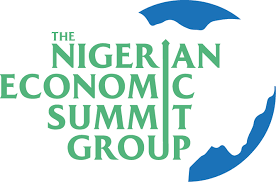Experts at the Nigerian Economic Summit Group (NESG) say Nigeria is uniquely positioned as an all-year-round tourism destination with a strong domestic tourism sector; rich natural resources; and a variety of associated attractions including music, entertainment, sports, religion and a very rich cultural heritage.

This formed the highlights of discussions at the just concluded forum through its tourism and hospitality industries thematic group of the Tourism, Hospitality, Entertainment, Creative and Sports as a business (THECS) with the theme “Repositioning Nigeria’s Tourism and Hospitality sectors for Sustainable Growth and Profitability.”
According to THECS Policy Commission and board member of the NESG, Mr Udeme Ufot in his welcome address, the NESG is committed to sectorial reforms with a view to fixing some of the challenges bedeviling the Nigerian Tourism and Hospitality Industry Including the absence of comprehensive database of neither operators, nor clear, identifiable sector value chains to properly reposition the industries as viable business sectors of the economy.
Other challenges according to him is not fully adopted mainstream best practices in technological innovations and digital transformation initiatives and an absence of formal recognition of the linkages between sports, culture, entertainment, creative industries (arts/crafts inclusive), agriculture, cuisine, the environment, infrastructure, transport, security as enablers for the exponential growth of the tourism and hospitality.
He revealed that it was important for stakeholders to acknowledge the critical role government needs to play to move the sectors forward while supporting the implementation of policies that supports the sector.
Permanent Secretary, Federal Ministry of Information and Culture, Dr. (Mrs.) Ifeoma Anyanwutaku, while delivering a presentation on “Tourism & Hospitality Sectors as Catalysts for Nigeria’s Economic Recovery” said that tourism has tremendous growth opportunities for the Nigerian economy and that the sectors continue to have potentials for growth.
She said the sectors have economic and socio-cultural impacts on the environment and play a role in economic development including having significant potentials to aid the utilization of natural resources by providing employment and promoting inflow of Foreign Direct Investment (FDI) and foreign exchange earnings for the country.
Dr Anyanwutaku said the tourism and hospitality sectors can only thrive when there is a political will from the government and there was a need to implement certain actions including the resuscitation of the Presidential Council on Tourism (PCT), the establishment of a tourism development fund, harping on a review of the governing laws and establishment of a tourist guide company for the country to fast track the development of the sectors.
The Director-general, Nigerian Institute for Hospitality (NIHOTOUR), Mr Nura Kaginwa said there was a need for policy and regulatory framework for the industry to help the growth and development of tourism and hospitality in Nigeria.
Mrs Ngozi Ngoka, Thematic Lead Tourism & Hospitality Industries Thematic Group (THITG), Nigerian Economic Summit Group (NESG) “Proposed Roadmap for Optimized Tourism and Hospitality Sectors in Nigeria,” said there are three types of tourism, Domestic, inbound and outbound tourism and that the three forms can be combined to form internal, national and international tourism.
She said some of the economic challenges faced by hotels in Nigeria include insufficient manpower training, absence of tourism police, lack of effective collaboration between national and subnational governments, insufficient marketing of Nigeria as a tourist destination, but a growing diaspora market and positive image created by the entertainment and creative sector offer a ray of hope for the transformation of the sectors.
Mr Andrew Brown, Regional Director of World Travel and Tourism Council (WTC) in his goodwill message said that pre-covid 19, travel and tourism accounted for 330 million jobs worldwide and that figure is expected to grow to 440 million by 2030.
He, however, noted that about $4.5 trillion were lost by the tourism and hospitality sectors as a result of the COVID-19 pandemic worldwide and over 770,000 jobs were lost in the sector in Nigeria alone.
He encouraged operators in the sectors to adopt safe travel steps and implement protocols that will help travellers feel safe when they travel.
Furthermore, Mr Brown revealed that women account for 54 per cent of all jobs in travel and tourism and stakeholders should continue to encourage all activities that will foster an equitable environment that will allow women to thrive in the workplace.
The comptroller-general of Nigerian Immigration services (NIS), Muhammed Babandede while delivering the opening remarks said that tourism is important and they have liberalized entry for Nigerians to help aid the sector.
He said the NIS recognizes other forms of tourism. He said religious tourism should be encouraged and the visa policy should be addressed to aid the development of the sector. He said there are three types of visas. When you apply for e-visas online and you can’t get visas at the point of entry.
Mr Francis Anatogu, Senior Special Assistant to the President on Public Sector Matters/Secretary, National Action Committee on Africa Continental Free Trade Area (AfCFTA) said that liberalisation of the tourism and hospitality sectors will allow for speedy economic growth for the country and the removal of barriers of trade across Africa through market access, will do a lot to boost trade and regional cohesion.
Mr Guy Murray Bruce, CEO of Silverbird Organisation said that the pandemic resulted in a 70 per cent loss in entertainment revenue for their company and that despite the interventions instituted by the government, the hospitality and tourism sector is struggling to stay afloat.
Nigerian Economic Summit Group, NESG, is a private sector-led think-tank and policy advocacy group based in Nigeria. The NESG promotes sustainable growth and the development of the Nigerian economy.
The objectives of the NESG include building a first-class research institution to help support stakeholders in the execution of policies, articulate programs and strategies in response to any emerging trends in national and world economy and having a clear economic action agenda.















